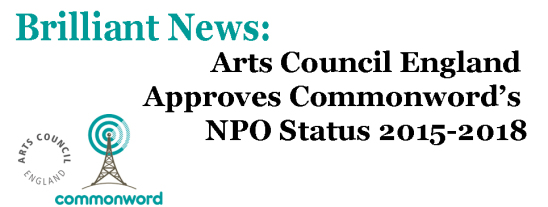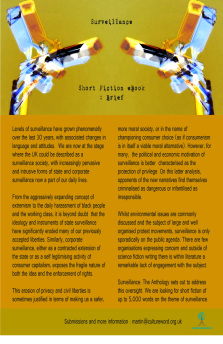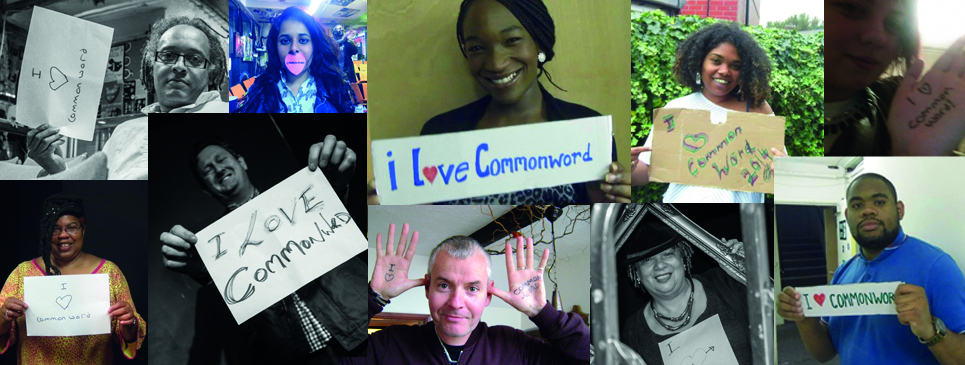Brilliant News: Arts Council England Approves Commonword’s NPO Status 2015-2018

Brilliant News: Arts Council England Approves Commonword’s NPO Status 2015-2018
Commonword has recently received news from Arts Council England that, following our official complaint and the Arts Council’s subsequent re-assessment of our application to become a National Portfolio Organisation for the years 2015-18, Commonword’s status as a National Portfolio Organisation has been fully approved.
Commonword’s Artistic Director, Pete Kalu said, “Commonword is delighted that our strategic importance in the literature eco-system, both regionally and nationally, has now been recognised by Arts Council England. Our track record of success in discovering, nurturing and promoting new writers is second to none. Our pioneering work ensuring new voices – especially those of hard to reach communities – are fostered and heard will now continue on a sure footing. It is our evidence-backed belief that the fostering of such voices is crucial not only to the reinvention and invigoration of literature in the UK but that such voices, by their unique insight into our society, also enhance the common good.”
“Alison Clark-Jenkins, Director North, Arts Council England, said: “Our investigation of the complaint made by Commonword showed that there had been inconsistencies in the way we had applied our processes. We have a fair and robust system in place to address complaints and to look again at our decisions when it is clear that our processes were not followed.
“Following the reassessment of Commonword’s application we are pleased to announce that it will be offered funding of £94,247 per year over the three years from 2015-18 as a National portfolio organisation. Commonword makes a valuable contribution to literature development, as a writing agency focused primarily on diversity and equality and developing talent.”
Commonword’s Chair, Deyika Nzeribe said, “we look forward to renewing our relationship with new writers and hard to reach communities in the North West. This decision will be to the benefit of hundreds of North West writers, particularly diverse and young writers. We thank everyone for their support and persistence during the difficult last six months.”
Further information from Commonword can be obtained from Commonword’s Artistic Director, Pete Kalu pete@cultureword.org.uk
Further information from Arts Council England can be obtained from Senior Manager, Advocacy and Communications, Julie Leather julie.leather@artscouncil.org.uk
Commonword’s news as a tweet: It’s morning at Commonword again. The night of evisceration has ended. ACE approves Commonword’s NPO funding 2015-18 http://bit.ly/1zyzn56




